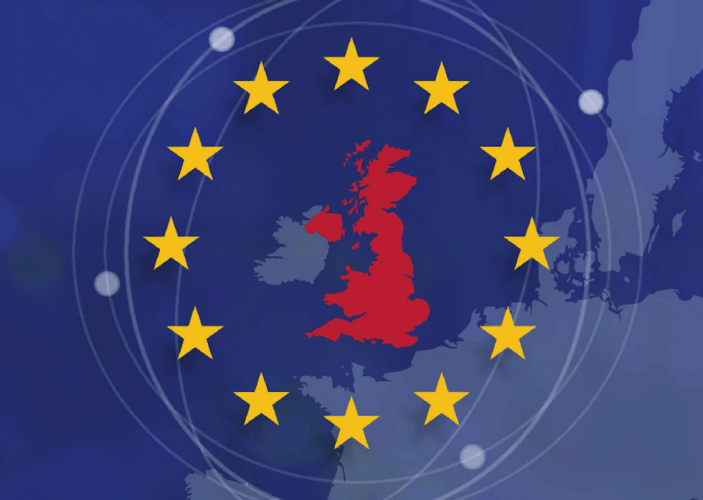Speaking at the EEF’s annual dinner, Temple laid out the economic and political argument for staying in the EU and called for the UK to take a leading role in driving reform from within.

Highlighting the importance of the EU economically, Temple said, “Our manufacturers, big and small depend on access to it, its supply chains and production networks. Large and easy access to market matters far more than just its spending power. It matters because it is a platform for scale. Big domestic markets allow their companies to grow quickly and take a strong global position.
“The EU is a useful whipping post for populists but the facts of our economic lives in Britain are European. The job of our elected politicians is to commit themselves to using the power and influence they have to make it work better, rather than make excuses about the limitations they face, and simply giving up and taking us out into an abyss of uncertainty and risk."
Being in the EU gives us certainty, whereas those who argue we should leave can only offer uncertainty and risk
Temple also highlighted the attractiveness of the UK being in the EU as a magnet for Foreign Direct Investment and the risk to high value, high skill jobs should the UK leave: “In short, the great risk of leaving is that our country would be economically poorer. Being in the EU gives us certainty, whereas those who argue we should leave can only offer uncertainty and risk with few, if any, real tangible benefits. The risk our companies might be less prosperous, the jobs of the people who work for them less secure, their future pension worth less. We have to convince people, in a language they understand that, economically, they and their families have a quality of life which is better for us being a member."
Were we to leave the EU now nobody knows what will happen
Temple also warned of the political risks of leaving and a diminished role for the UK in world affairs: “Were we to leave the EU now at a time when the continent faces challenges, perhaps greater than at any time since its creation, from a volatile middle east and, a turbulent world economy, nobody knows what will happen. But, what I do know, there is a risk it will create considerable uncertainty and could make these dangers still more threatening.
“Domestically, an English exit majority, with the potential opposite outcome in Scotland, would put even greater strain on the Union. Internationally, leaving would diminish both our, and the EU's, place in the world and significantly affect the relations countries such as the United States, Russia and Asian powers have with the UK and Europe."
Temple added however, that Europe cannot remain where it is and that a ‘one size all fits’ policy cannot be the only option going forward. Praising the Prime Minister’s attempts to fight for change he will say: “The Prime Minister may, or may not, have agreed a good deal for us last week. That’s a matter of personal opinion but, what he is fighting for is worth having. The recognition there is more than one way forward than "ever closer political union", the stress on the importance of competitiveness, lower business costs and protection for countries outside the eurozone are important in themselves.
According to a recent EEF survey on the topic, 61% of EEF members want the UK to remain in the EU, while just 5% support a ‘Brexit
“They also have a broader importance in the shape of a rebuff for the dead hand of Brussels bureaucracy, a recognition that the social market needs a bit more market and, that the problems facing countries from the Balkans to the Baltic to Iberia cannot be shoehorned into a single 'one size fits all' policy.”
According to a recent EEF survey on the topic, 61% of EEF members want the UK to remain in the EU, while just 5% support a ‘Brexit’. Respondents said that the main advantage for business of remaining in the EU is that it makes it easier for UK companies to start exporting (81%), whilst the main disadvantage is red tape (72%).




Red Bull makes hydrogen fuel cell play with AVL
Formula 1 is an anachronistic anomaly where its only cutting edge is in engine development. The rules prohibit any real innovation and there would be...